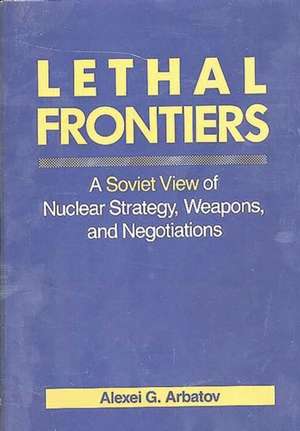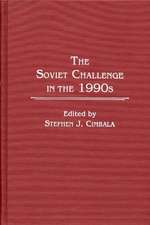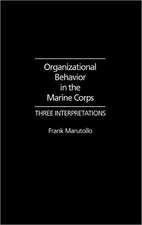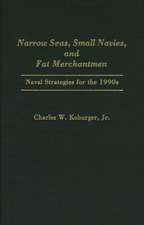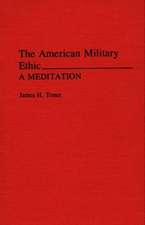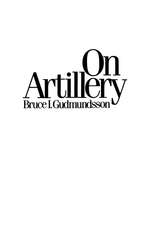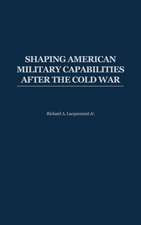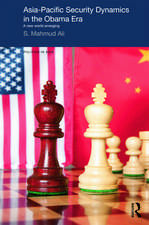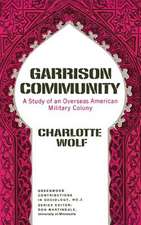Lethal Frontiers: A Soviet View of Nuclear Strategy, Weapons, and Negotiations: Praeger Security International
Autor Alexei G. Arbatov Editat de Kent D. Leeen Limba Engleză Hardback – 23 oct 1988
"Lethal Frontiers" is one of the first samples of Soviet scholarship on nuclear strategy readily available to Western readers. A rising star in the Soviet foreign policy establishment, Arbatov offers a remarkable view of the evaluation of U.S. nuclear policy and strategy. This scholarly book is free of the ideological constraints and negative effects of excessive Soviet secrecy so often characterizing Soviet works on this subject. The author begins by tracing the buildup of U.S. nuclear and conventional forces during the Kennedy and Johnson administrations, and examines initial U.S. reactions to the achievement of strategic nuclear parity by the Soviet Union in the late 1960s and early 1970s. From notions of flexible response, to the Schlesinger doctrine, and ideas of fighting a limited nuclear war, Arbatov argues that the U.S. national security establishment has had enormous difficulty in reconciling itself with Soviet strategic parity. Consequently, U.S. strategy and arms programs have invariably collided with and contradicted the arms control process and efforts to decrease U.S.-Soviet tensions. In light of this, and of the new Soviet approach to security, Arbatov observes the challenges lying ahead in the new era of Soviet-American relations.
Din seria Praeger Security International
- 18%
 Preț: 334.19 lei
Preț: 334.19 lei - 8%
 Preț: 335.53 lei
Preț: 335.53 lei - 34%
 Preț: 376.10 lei
Preț: 376.10 lei - 46%
 Preț: 443.64 lei
Preț: 443.64 lei - 29%
 Preț: 240.11 lei
Preț: 240.11 lei - 8%
 Preț: 304.56 lei
Preț: 304.56 lei - 34%
 Preț: 373.82 lei
Preț: 373.82 lei - 19%
 Preț: 412.79 lei
Preț: 412.79 lei - 19%
 Preț: 338.42 lei
Preț: 338.42 lei - 18%
 Preț: 335.62 lei
Preț: 335.62 lei - 27%
 Preț: 377.35 lei
Preț: 377.35 lei - 27%
 Preț: 376.75 lei
Preț: 376.75 lei - 18%
 Preț: 336.46 lei
Preț: 336.46 lei - 18%
 Preț: 321.73 lei
Preț: 321.73 lei - 27%
 Preț: 384.51 lei
Preț: 384.51 lei - 18%
 Preț: 320.50 lei
Preț: 320.50 lei - 18%
 Preț: 320.50 lei
Preț: 320.50 lei - 18%
 Preț: 321.35 lei
Preț: 321.35 lei - 24%
 Preț: 420.54 lei
Preț: 420.54 lei - 14%
 Preț: 335.99 lei
Preț: 335.99 lei - 18%
 Preț: 355.82 lei
Preț: 355.82 lei - 18%
 Preț: 319.83 lei
Preț: 319.83 lei - 18%
 Preț: 334.28 lei
Preț: 334.28 lei - 32%
 Preț: 354.48 lei
Preț: 354.48 lei - 14%
 Preț: 335.14 lei
Preț: 335.14 lei - 38%
 Preț: 405.98 lei
Preț: 405.98 lei - 40%
 Preț: 571.34 lei
Preț: 571.34 lei - 18%
 Preț: 321.85 lei
Preț: 321.85 lei - 18%
 Preț: 323.25 lei
Preț: 323.25 lei - 18%
 Preț: 253.28 lei
Preț: 253.28 lei - 40%
 Preț: 571.50 lei
Preț: 571.50 lei - 14%
 Preț: 333.72 lei
Preț: 333.72 lei - 18%
 Preț: 301.73 lei
Preț: 301.73 lei - 19%
 Preț: 352.96 lei
Preț: 352.96 lei - 26%
 Preț: 387.80 lei
Preț: 387.80 lei - 18%
 Preț: 302.77 lei
Preț: 302.77 lei - 14%
 Preț: 333.91 lei
Preț: 333.91 lei - 17%
 Preț: 325.80 lei
Preț: 325.80 lei - 24%
 Preț: 338.58 lei
Preț: 338.58 lei - 34%
 Preț: 414.73 lei
Preț: 414.73 lei - 18%
 Preț: 354.30 lei
Preț: 354.30 lei - 29%
 Preț: 254.29 lei
Preț: 254.29 lei - 18%
 Preț: 354.11 lei
Preț: 354.11 lei - 18%
 Preț: 334.38 lei
Preț: 334.38 lei - 14%
 Preț: 302.68 lei
Preț: 302.68 lei - 18%
 Preț: 322.97 lei
Preț: 322.97 lei - 27%
 Preț: 376.50 lei
Preț: 376.50 lei - 27%
 Preț: 322.81 lei
Preț: 322.81 lei - 27%
 Preț: 382.91 lei
Preț: 382.91 lei - 18%
 Preț: 320.87 lei
Preț: 320.87 lei
Preț: 379.20 lei
Preț vechi: 633.48 lei
-40% Nou
72.57€ • 75.33$ • 60.51£
Carte tipărită la comandă
Livrare economică 22 martie-05 aprilie
Specificații
ISBN-10: 0275930173
Pagini: 313
Dimensiuni: 156 x 234 x 19 mm
Greutate: 0.62 kg
Editura: Praeger
Colecția Praeger
Seria Praeger Security International
Descriere
Notă biografică
Alexei G. Arbatov is head of the Department of Disarmament and Security Affairs in the Institute for World Economy and International Relations of the USSR Academy of Sciences. He has published a large number of articles and three books dealing with problems of disarmament negotiations, the military balance, and military strategy. He presently lives in Moscow, where he is a member of the Council of Soviet Scientists for Peace against the Nuclear Threat.
Kent D. Lee is a PhD candidate in political science at Columbia University's W. Averell Harriman Institute for Advanced Study of the Soviet Union, where he specializes in Soviet security policy. He and the author, Alexi Arbatov, have worked together extensively over the past two years in both the U.S. and the Soviet Union to produce this translation. Lee also works at the New York-based Institute for East-West Security Studies, and lives in New York city with his wife and daughter.